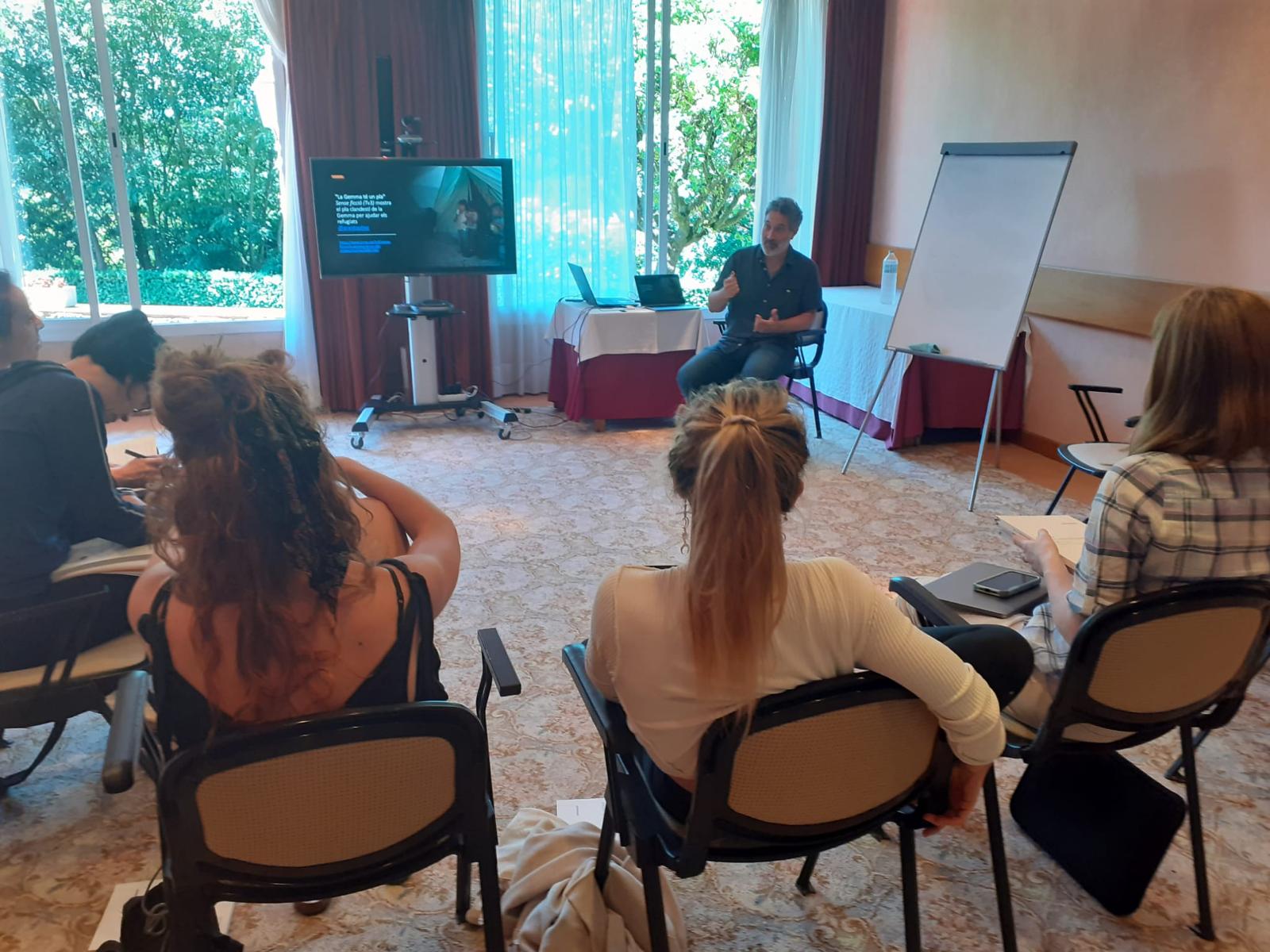Collective residencies / Let's consider borderlands / Olot
OSCAR JANÉ
From Monday, 6 June 2022 to Monday, 13 June 2022
Bio
Senior Lecturer of History at the Autonomous University of Barcelona. He specializes in Early Modern European History, but in recent years, his research extends to Modern and Contemporary history. He was Junior Research Fellow at the University of Toulouse and at the University of Barcelona (UB) and Research Fellow at the Autonomous University of Barcelona (Ramón y Cajal).PhD in History (Université de Toulouse- Le Mirail and UAB) in 2003 about relationships between France and Catalonia. During years, he has worked on the political construction of modern states and its effects, and focuses on border studies, identities and personal memoirs. He is Editor-in-chief of the Journal Afers. Fulls de recerca i pensament and of the Journal Mirmanda. Revista de Cultura.
On the study of borders, he organized international conferences on this subject about the idea of “resilience of the border”, the Treaty of the Pyrenees and the comparison on the observation of borders. He has also published papers and book chapters like “Psico(socio)logía e identidad de la frontera en la época moderna” (2008), “The boundaries between France and Spain in the Catalan Pyrenees” (2014), "Limites et atouts de l’invention des frontières à l’époque moderne" (2018) or "Fronteres autonòmiques i fronteres d’Estat" (2019).
Project
Borders are neither linear nor a line across the landscape. They are elements of a strictly human essence. Until today, borders have been studied from many points of view: their raison d'être, their social effects, the power they give to states, etc. But somehow, borders are actually spaces in themselves, boundaries which can be more or less flexible, dynamics, statics, resilients. In its content we find people, cultures, transfers of thoughts. And yet, these border spaces can be so different depending on where we look, which makes it very difficult to make a well-crafted comparison. Therefore, an interdisciplinary and polycentric analysis can give us tools to know how those spaces that are comparable, despite their impossibility, can evoke singular, local and universal realities at the same time. The aim is an open essay to the exchange and the transgression of ultra border thoughts.


